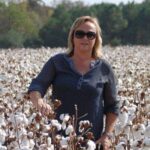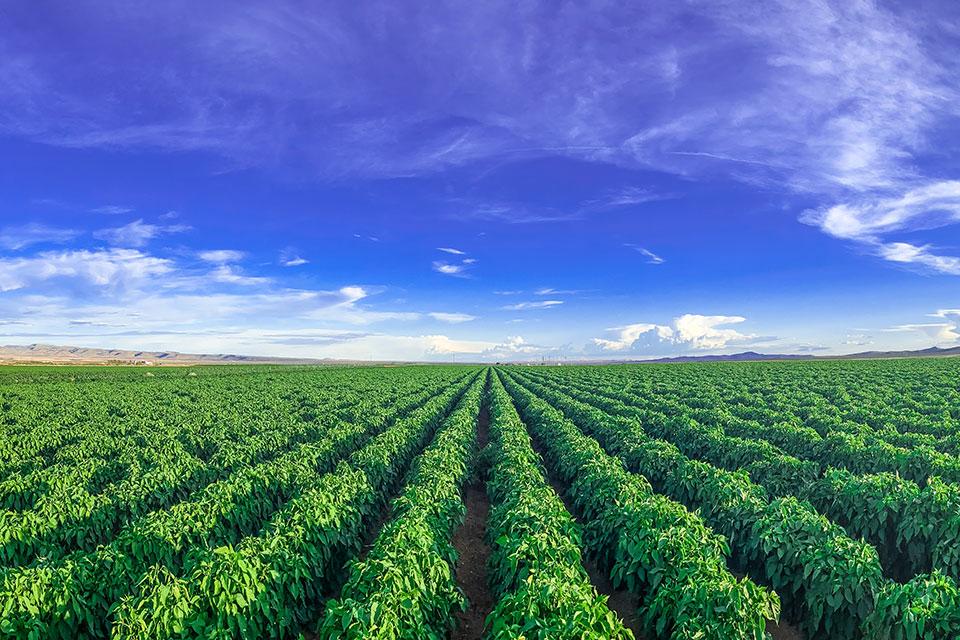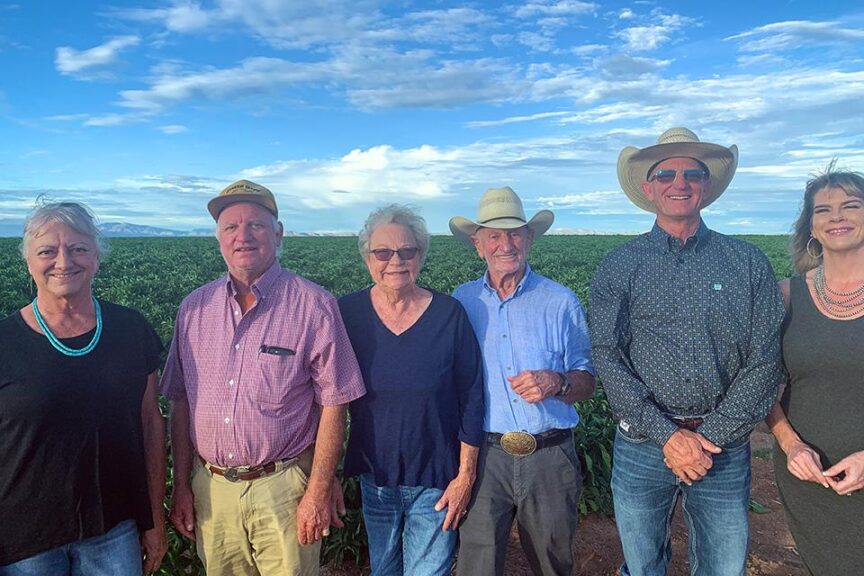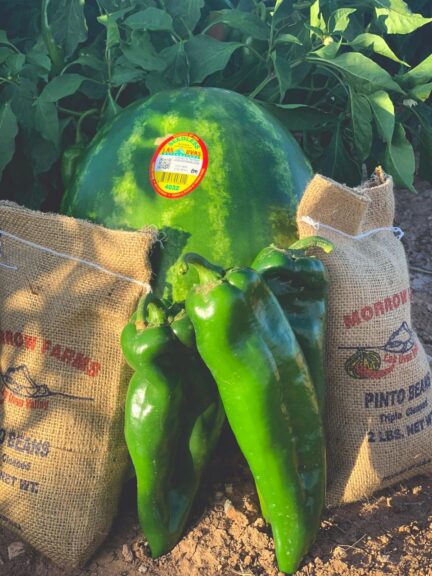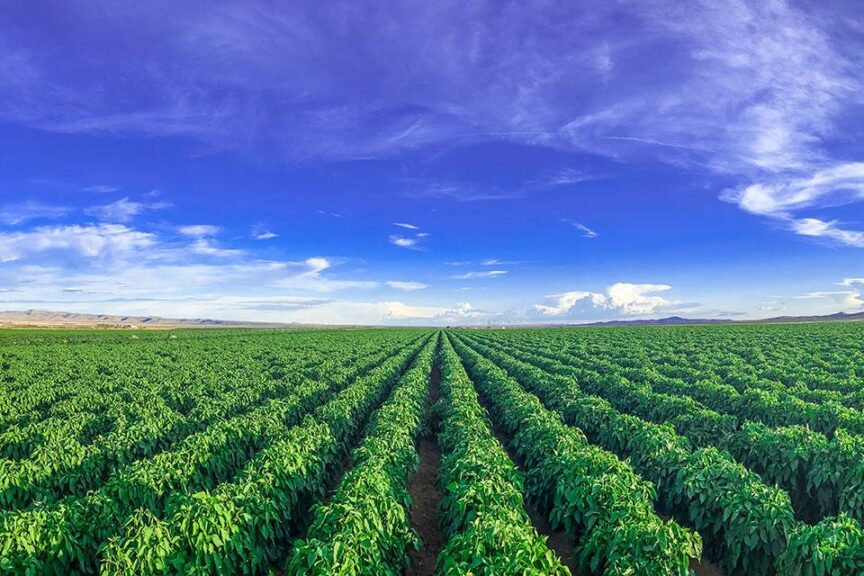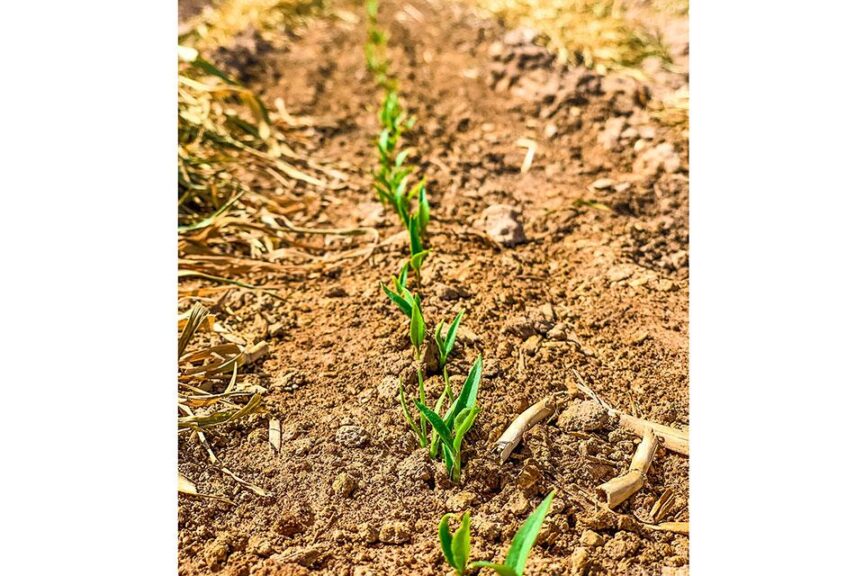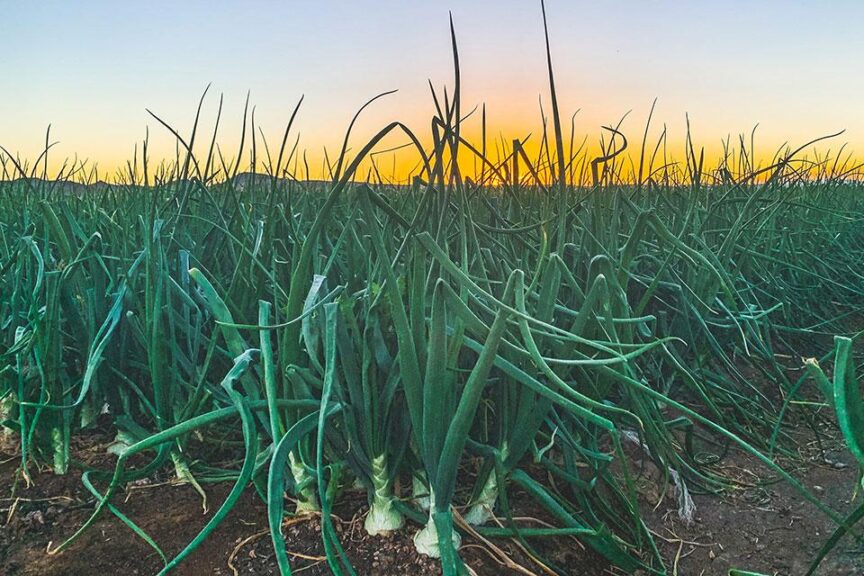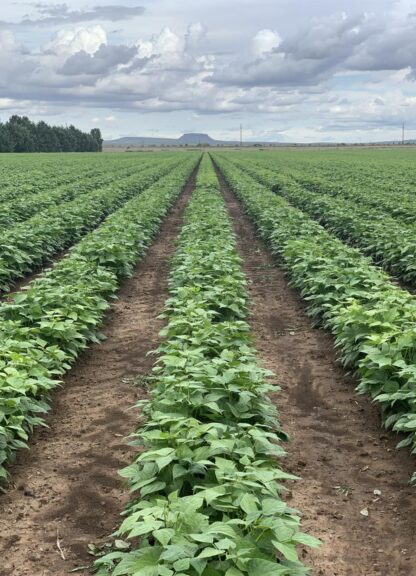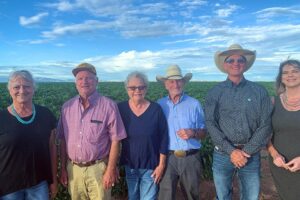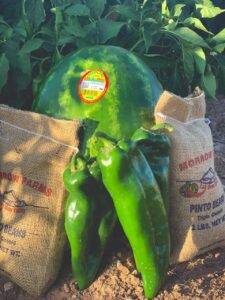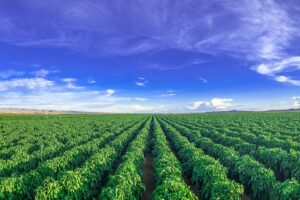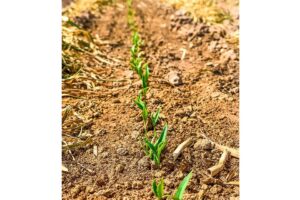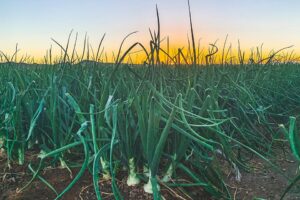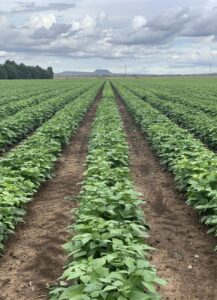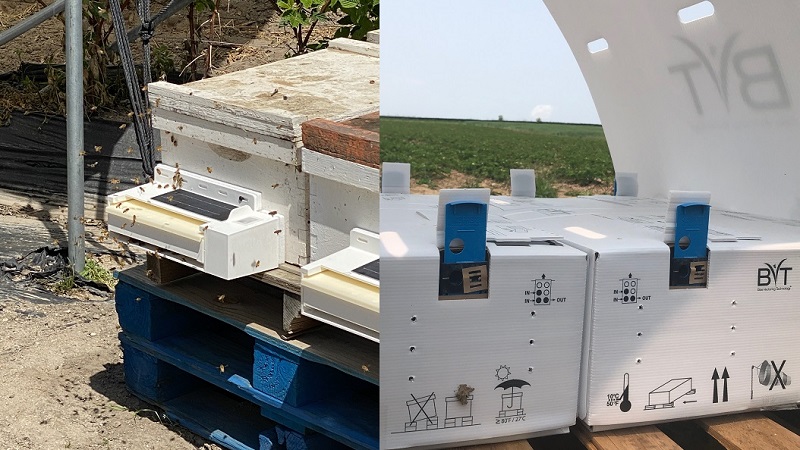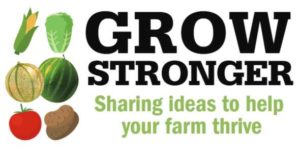Modern Vegetable Growing Is Alive and Thriving in the Desert Southwest
The Hatch Valley hasn’t been water rich in the four generations the Morrows have farmed there. That’s why talk about a drip irrigation system that made financial sense perked Morrow Farms’ Harvey Morrow’s ears 30 years ago.
“We were always looking for ways to irrigate more efficiently,” Morrow says, thinking back to a trip he took to look at onion harvest equipment in McAllen, TX.
Morrow and the other farmers found they all wanted to give drip irrigation a try. So they decided to trial the method on Morrow’s and two neighboring farms and compare notes. The trials exceeded expectations.
“What we found out is we do save water. But that’s not the biggest advantage,” Morrow says. “We found out our yield and quality are so much better that if we didn’t save any water, it would still be worth it to use drip irrigation.”
From Furrows to Drip Tape
But drip does save water. And that’s an equally high priority today as farmers in Hatch, NM, and the surrounding area drive for sustainable production in an arid environment with an endangered water supply.
Prior to installing drip irrigation, Morrow Farms used furrow irrigation. In addition to reducing water usage by about one-third when compared to furrow, the switch to drip irrigation dropped the farm’s labor needs from a crew of irrigators all season long to needing one person to control the system. For the farm’s founders — Harvey, his father Joe, and his brother, John — reducing the labor needs makes a significant impact on the farm’s economic sustainability.
That’s like switching from a rain gun to a sprinkler.
Embracing Innovation
The innovation didn’t stop with that first installation, says Tyler Holmes, a fourth-generation Morrow who came home to the farm after working too long in a university office with no windows. On the farm, she’s not only outside but also works with family members who continually look to the future and what the farm will need to thrive.
“What Harvey has done to be innovative and prepare our farm for the future will serve us well,” Holmes says. “It will keep this farm going through the generations.”
Harvey Morrow, however, is quick to point out that innovation didn’t start with him.
“My father is the same way. He’s very open to new technology,” Morrow says. “That does help make things work from generation to generation.”
Speaking about generations covers family succession as well as technology upgrades.
Moving to the Next Generation
With the entire operation in drip irrigation, the Morrows are moving to newer technology generations as those upgrades make economic sense.
Today, Holmes says, most of the fields are equipped with drip application systems that run on updated software systems with long-range radio frequencies. Several systems operate from solar panels.
Furthermore, she reports, global positioning systems on their tractors allow for planting over the top of the drip tape, which helps increase the number of crops between tape replacements. Through the drip systems, they also make site-specific application of crop protection and nutrients.
Morrow Farms uses two farm bases to grow a variety of crops, including watermelons, onions, Hatch chile, pinto beans, alfalfa, and corn for silage. With that crop diversity, flexibility and precision are essential. The drip system can be broken into 10-acre blocks to meet application needs.
“Site-specific applications help us go directly to the plants that need it,” Holmes says. “It saves money, protects the environment, and is safer for us and our employees.”
Record keeping associated with the system also is integral to the overall on-farm data collection that supports food safety on the farm, Holmes says.
Holmes earned degrees in ag economics and marketing on her way to grad school and a university teaching career. However, the farm and those wide-open spaces drew her home. She feels blessed to be there — even on a day when the focus is bracing the start of a new barn so an expected windstorm doesn’t blow down their progress.
“Not knowing what the future is going to bring for farming is stressful,” Holmes says. “But I’m very lucky they’re so innovative and want me to be a part of it.”
At a Glance: Morrow Farms
Founded: 1990
Owners: Joe Morrow and sons John Morrow and Harvey Morrow
Size: 1,800 acres
Crops: Watermelon, Hatch chile, onions, pinto beans, alfalfa, silage corn, and barley
Customers: Distributors, grocery stores, and direct to consumers




